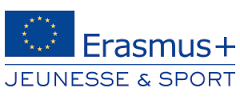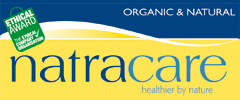Kyrgyz conference highlights need for a stronger joint voice from Central Asian civil society
Conference on gender equality and sustainable development in Bishkek
11.07.2014 | WECF

The conference was joined by representatives from WECF and Central Asian NGO’s as well as Kyrgyzian MP’s. Aynuru Altybaeva (MP) ensured the importance given by the parliament to gender equality legislation and women’s role in development. She noted that Kyrgyzstan has an active network of women legislators who support gender equality initiatives across different parties. The gender focal point, Nazgul Beysheeva (Ministry of Social Development, Kyrgyzstan), presented current legislation on gender equality. Aisuluu Amanova (Ministry of Economy), presented the recently adopted National Strategy on Sustainable Development which includes 23 gender equality indicators to ensure women’s key role in sustainable development of the country.
Sascha Gabizon of WECF welcomed the participants in the name of the organizers from Civil Society. She highlighted that gender equality is a prerequisite for development and sustainable development in Central Asia, followed by an introduction of the “International Women’s Empowerment” project funded by the Dutch Ministry of Development Cooperation. So far, the outcomes of this project are incredibly positive: with little money women have created great value, increased income from farming, water and energy services, and production and regional trade of these local products – being an engine for the local economy. At the same time, in all countries women still face specific barriers, regarding contracts, taxation, divorce, marriage, access to credit and resources. Women’s empowerment projects are however still too scarce. The lessons from these local experiences will be linked to the national strategies and policies in Central Asia, as well as the global process on developing a new post2015 sustainable development agenda.
Raushan Sarsembayeva, the head of the Kazakh National Women’s Council and head the Association of Business Women of Kazakhstan, presented their work on support for women entrepreneurship. The deputy of the Coalition of NGOs of Tajikistan gender researcher Alla Kutekova from Tajikistan presented the analysis of women’s lack of access and control of productive resources, in particular land, seeds, and credit. The representative of a local CSO, Youth Ecological Centre, partner presented best practices of rural women’s income generation activities. The head of the water association, presented how she had developed the organization which was now providing clean drinking water at affordable costs and subsequently she had been elected into the local authority council.
Sabine Machl of UNWOMEN Kyrgyzstan presented their latest publication “Gender and Climate Change” developed in cooperation with WECF Partner BIOM and UNDP. UNWOMEN’s only country office for Central Asia is based in Kyrgyzstan, supporting the national government with gender policies, analysis and project implementation. UNDP Kyrgyzstan presented the consultations carried out in Central Asia with stakeholders.
The participants worked in four groups developing recommendations for integrating Central Asian priorities into the draft “Sustainable Development Goals”, presenting recommendations for strengthening targets on rural women’s empowerment, rights of internal and external migrants, right to land, sexual and reproductive health and rights, control over water resources, unpaid care work, evaluation and accountability, decent work and equal pay for work of equal value, mountain ecosystems, priorities for landlocked countries, integrating gender in national strategies on climate change and sustainable technologies.

The participants discussed the need for bringing a stronger joint voice from Central Asian civil society, and proposed to create a “network of networks” to share information and coordinate policy responses on all the themes of the new SDG/post2015 development agenda, and the development of mechanisms to nominate regional representatives to participate in regional and global policy processes.
The conference and its participants were covered widely in the main online media and on television in Kyrgyzstan.
Download:
Related News
Meet the Winners of the Gender Just Climate Solutions Award at COP24
On the 70th anniversary of the Universal Declaration of Human Rights, we awarded Gender Just Climate Solutions Winners at the climate negotiations in Katowice, Poland
11.12.2018
Invitation: Gender Just Climate Solutions Award 2018
10 December, COP24 Katowice
04.12.2018
Getting to the Future We Want
4-7 November, Brussels: European Environmental Bureau’s (EEB) Annual Conference
12.11.2018
GoodFood4All
WECF and partners all over Europe start GoodFood4All Campaign
06.11.2018
#Ruralwomen: join our Women2030 campaign!
15.10.2018




































